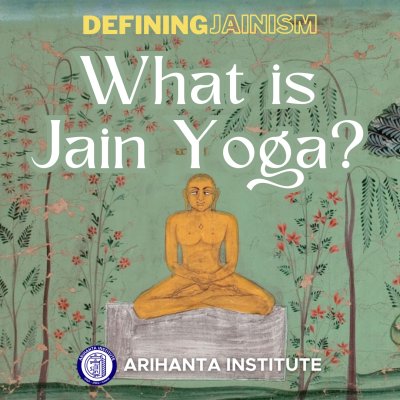Blog

EJS Podcast Ep. 30 with Victoria Moran 12/19/2025
Vegan Then & Now
In this live episode of the Engaged Jain Studies Podcast, Arihanta Institute professor and lead organizer of the Vegan Studies Initiative, Jonathan Dickstein, PhD, sits down with acclaimed author, educator, and longtime vegan advocate Victoria Moran for a wide-ranging and deeply reflective conversation on the evolution of veganism.
Read More

Synthesizing Nonviolence and Compassion 12/16/2025
Dr. Dickstein first learned about ahiṃsā (nonviolence) through the Classical Yoga tradition. There it appeared as a practice of restraint (yama), in fact the most fundamental practice of restraint. Ahiṃsā was conveyed as something one does, an action of refraining from harm, rather than something one feels or believes.
Read More

Decolonizing Jain Studies, Part 2 12/11/2025
Cultural Sovereignty, Epistemic Friction, and the Scholar’s Role
What happens when Western frameworks reshape, distort, or even erase the very cultures they claim to study? This article by Dr. Bohanec examines cultural sovereignty, epistemic friction, and the ethics of critique—challenging scholars to navigate the line between justice and domination.
Read More

AAR 2025 Boston 12/09/2025
An Update from the Field
Prof. Miller has returned from the 2025 Annual Meeting of the American Academy of Religion in Boston. It was an exciting and wonderful opportunity to meet with colleagues and friends and to share the methods of Engaged Jain Studies across multiple disciplinary communities. He shares some of the highlights of this annual academic ritual.
Read More

EJS Podcast Ep. 29 | Engaged Jainism 12/05/2025
Critical & Constructive Studies of Jain Social Engagement
In this episode of the Engaged Jain Studies Podcast, Dr. Venu Mehta interviews Arihanta Institute Professors Dr. Christopher Jain Miller, Dr. Cogen Bohanec, and Dr. Jonathan Dickstein about the forthcoming edited volume, Engaged Jainism: Critical and Constructive Studies of Jain Social Engagement (SUNY 2025).
Read More

Arihanta Institute's Professor Christopher Jain Miller awarded Uberoi Foundation Grant for the project “Engaged Anekāntavāda” 12/04/2025
Arihanta Institute is proud to announce that the Uberoi Foundation for Religious Studies has awarded a grant to Professor Christopher Jain Miller, Vice President of Academic Affairs, to lead and organize the 2026 initiative, “Engaged Anekāntavāda: Jainism Engaging Buddhism, Hinduism, Sikhism+.”
Read More

Publisher's Weekly Highlights "Compassion as a Path to Freedom" panel at DANAM AAR 2025 11/17/2025
Join us in Boston - Fri, Nov 21
Four scholars in the Dharma traditions of Jainism, Buddhism, Sikhism, and Hinduism will present papers exploring the central role of compassion, as a virtue, a transformative practice, and a path to spiritual freedom and social harmony. The discussion will be moderated by Christopher Miller, cofounder and VP of Arihanta Institute.
Read More

Animals and Religion at AAR 2025 11/12/2025
The November 2025 Annual Meeting of the American Academy of Religion promises to showcase the dynamic state of the field of Animals and Religion. Through our Vegan Studies Initiative, Arihanta Institute strives to contribute to the evolution of this field, both inside and outside of the academy.
Read More

The Yoga-śāstra Translation Course: 11/07/2025
Arihanta Institute’s Leadership in Sanskrit, Jain Yoga, and Linguistic Research
Sanskrit 3 and 4 with Dr. Bohanec form a continuous sequence centered on Ācārya Hemacandra’s Yoga-śāstra and auto-commentary—one of the most comprehensive Jain works on yoga, ethics, and liberation, and a cornerstone of Arihanta’s advanced translation and yoga studies focus.
Read More

EJS Podcast Ep. 28 with Laila Kassam, PhD 11/05/2025
People Power for Animal Freedom
In this episode of the Engaged Jain Studies Podcast, Arihanta Institute professor and lead organizer of the Vegan Studies Initiative Jonathan Dickstein, PhD, speaks with Laila Kassam, Executive Director of Project Phoenix, a UK-based advocacy organization dedicated to building public will for animal liberation.
Read More

Fury, Patience, and Animal Lovers 10/31/2025
World Vegan Day is November 1, 2026. This year it reminds me of how I continue to live between two poles: fury and patience.
Read More

EJS Podcast Ep. 27 with Anna Halafoff, PhD 10/23/2025
Buddhism, (Non)Action & Compassionate Responsibility
Arihanta Institute professor Christopher Jain Miller, PhD, engages in a conversation with Dr. Anna Halafoff, Associate Professor in Sociology of Religion and Religious Studies at Deakin University, Australia delving into the Buddhist philosophy of compassion with a particular focus on the Dzogchen tradition.
Read More

Decolonizing Jain Studies, Part 1 10/22/2025
Contextualizing the Field and the Call for Cultural Accountability
This blog series will outline concrete strategies for scholars to engage in such work and reflect on what it means to take seriously the ethical and epistemological implications of decolonization within the study of Jainism.
Read More

Analyzing Jain Philosophy of Language and Mantra 10/15/2025
Part 2
In the realm of philosophical inquiry, the Jain philosophy of language offers a distinct and nuanced perspective that diverges significantly from other Indian philosophical traditions. This philosophy emphasizes the fluidity and non-eternality of languages, underscoring an intricate connection with the soul, which is central to Jain metaphysics.
Read More

"Jainism: An Indian Religion of Nonviolence" (Patrick Felix Krüger) 10/10/2025
New Book Announcement
A long-awaited project is finally coming to fruition: the English translation of Patrick Krüger’s "Jainism: An Indian Religion of Nonviolence" (German: Jainismus: Eine indische Religion der Gewaltlosigkeit) is now available through Routledge.
Read More

Prāṇa and Hiṃsā 10/03/2025
In contemporary Jainism, although appeals to sentience are prominent in pro-vegetarian and pro-vegan rhetoric, it remains unclear whether the traditional basis of Jain ethics is sentience or the possession of “vitality” or “life-force” (prāṇa).
Read More

Analyzing Jain Philosophy of Language and Mantra 09/29/2025
Part 1
Understanding the Jain theory of mantra and language philosophy presents a series of critical challenges, particularly in distinguishing Jain uses of linguistic terms from their more familiar Hindu or Buddhist context.
Read More

EJS Podcast Ep. 26 with Devinder Pal Singh, PhD 09/25/2025
Sikh Teachings & Practices of Compassion
Prof. Christopher Jain Miller engages in a thoughtful conversation with Dr. Devinder Pal Singh, exploring the Sikh dharmic tradition’s core teachings of compassion, selfless service, and social justice, while highlighting how these principles inspire real-world action and form the basis of his upcoming CSI course on Sikh compassion.
Read More

Engaged Jain Art 09/23/2025
Narendra Kumar Jain’s Seven Stages of Enlightenment on the Berlin Wall
Dr. Christopher Jain Miller spotlights Narendra Kumar Jain’s The Seven Stages of Enlightenment, a mural at Berlin’s East Side Gallery. He previews his chapter on this captivating painting for the forthcoming "Engaged Jainism" (Miller & Bohanec, 2025).
Read More

New Book Announcement: Engaged Jainism 09/12/2025
Critical and Constructive Studies of Jain Social Engagement (Miller and Bohanec, SUNY 2025)
Engaged Jainism presents 17 chapters from prominent new and senior scholars from around the world who showcase their approaches to engaged Jain studies using interdisciplinary approaches exhibiting varying degrees of the “constructive-reproductive,” “critical-analytical,” and “critical-constructive” methodological tendencies.
Read More

Awakening the Path of Jain Yoga 09/11/2025
A Journey of Transformation and Self-Discovery
Jain Yoga, rooted in the ancient wisdom of Jainism, offers a profound path for spiritual growth, self-discovery, and transformation. This timeless tradition, emphasizing non-violence (ahiṃsā), truthfulness (satya), and asceticism, has evolved over centuries, adapting to diverse cultural contexts, including modern Western societies.
Read More

EJS Podcast Ep. 25 Eileen Goddard 09/09/2025
Bhakti Approaches to Compassion
Prof. Bohanec, engages in a profound discussion with Eileen Goddard, a Religious Studies PhD candidate at UCSB delving into her fascination with the Caitanya Vaiṣṇava tradition and exploring the sixteenth-century Gauḍīya Vaiṣṇava movement which is the subject of her research and the focus of her upcoming CSI course.
Read More

Welcome to Fall Semester 2025 at Arihanta Institute! 09/05/2025
This semester, we warmly welcome you to participate in a wide range of graduate seminars, self-study courses, speaker events, and conference presentations with our faculty.
Read More

Meet the MA Students: An Interview with Ayaan Siddiqui 08/27/2025
"As someone born into a Muslim family, my desire to study Jainism offers a unique opportunity to foster interreligious dialogue between Islam and Jainism. I am deeply interested in exploring the philosophical intersections between the principle of Reham (رﺣم) in Islam and ahiṃsā in Jainism."
Read More

EJS Podcast Ep. 24 Laura Wright, PhD 08/26/2025
Gender, Animals, and Veganism
Prof. Jonathan Dickstein interviews Laura Wright, PhD—Professor of English at Western Carolina University and the scholar widely credited with naming and framing “Vegan Studies.”
Read More

Why Study Gujarati? 08/21/2025
A Gateway to Jain Studies and South Asian Linguistic Scholarship
Starting Fall 2025, CST will offer the first course in a two-semester, research-oriented Modern Gujarati sequence, taught by Dr. Cogen Bohanec and Dr. Venu Mehta, to build reading competence for Gujarati literature in Jain Studies and allied fields.
Read More

Translating Hemacandra's Yoga-Śāstra 08/20/2025
Advancing Jain Yoga Studies Through Philological Training
In the Fall of 2025, CST will offer a 15-week Sanskrit graduate seminar focused on translating the Jain Yoga-śāstra of Hemacandra and his auto-commentary, the Svopajña-vivaraṇa. In collaboration with Arihanta Institute’s Center for the Study of Jain Yoga, the course will be taught by Professor Cogen Bohanec, serving as Adjunct Faculty at CST.
Read More

EJS Podcast Ep. 23 Jishnu Guha-Majumdar, PhD 07/24/2025
Foundations of Animal Ethics
Prof. Jonathan Dickstein interviews Prof. Jishnu Guha-Majumdar, PhD about his upcoming Arihanta Institute course, Foundations of Animal Ethics, exploring core ethical theories, the link between thought and action, and why understanding why animals deserve moral consideration is just as crucial as knowing how to help them.
Read More

EJS Podcast Ep. 22 Sailesh Rao, PhD 07/09/2025
Compassionate Food Systems for Planetary Healing
Prof. Christopher Jain Miller interviews Dr. Sailesh Rao, Founder and Executive Director of Climate Healers. Listen as Dr. Rao describes the contours of a compassionate global food system, and understand why that food system must be plant-based in order to solve some of society's most pressing concerns.
Read More

Modern Global Jainism 07/04/2025
Jainism, one of the ancient Indian religions, has found its way into modern Western societies, both through the diaspora of Jains and through Western converts. The practice of Jainism in these contexts reflects a blend of traditional beliefs and contemporary adaptations, influenced by the cultural landscapes of the host countries.
Read More

Arihanta Institute's NY/NJ Informational Session Inspires Support 06/27/2025
Arihanta Institute recently welcomed over 100 members of the vibrant New York–New Jersey Jain community for a dynamic and engaging informational session hosted by Founder and CEO Dr. Parveen Jain and Board Member and respected community leader Prem Chand Jain.
Read More

EJS Podcast Ep. 21 Radical Jainism 06/25/2025
A Conversation with Anjli Shah, Sahana Mehta & Mohit Mookim
Can Jainism be radical? In this special live-recorded episode of the Engaged Jain Studies Podcast, Arihanta Institute professor and lead organizer of the Vegan Studies Initiative, Jonathan Dickstein, PhD sits down with three emerging voices in the Jain community.
Read More

Western Scholarship on Jain Studies 06/20/2025
Contributions, Critiques, and Collaborations
Western scholarship on Jainism has significantly shaped global understanding of the tradition, yet remains a complex field marked by both valuable contributions and ongoing critiques of bias and exclusion.
Read More

EJS Podcast Ep. 20 Nitin Shaw, MD 06/11/2025
Interreligious Approaches to Compassion in Action
Professor Christopher Jain Miller interviews Dr. Nitin Shah about his humanitarian work grounded in Jain principles of ahimsa (non-violence), anekantavad (multiplicity of views), and aparigraha (non-possessiveness).
Read More

Compassion in the Dharma Traditions 06/11/2025
Jainism, Buddhism, Hinduism, and Sikhism all center compassion as a core ethical principle. Despite differing frameworks, they share a commitment to reducing suffering and promoting collective well-being.
Read More

Next-Gen Jainism, Belief, and Authority 05/29/2025
The youthful demographic of Jains in the U.S. presents significant implications for religious affiliation. Young people in the US and across the globe are increasingly less religious than older generations. In the United States, approximately 40% of all Americans born since 1981 are nonreligious, or are at least “unaffiliated” with respect to religion.
Read More

EJS Podcast Ep. 19 Melanie Barbato, PhD 05/27/2025
Human Security as Compassion
Dr. Barbato explores Jain perspectives on human security, covering Personal, Health, Food, Environmental, Economic, Political, and Community Security. Gain insight into Jain responses to these global challenges and feel inspired to contribute to a more secure world for all.
Read More

Part 4. Cross-Cultural Recognitions Between Vegans & Jains 05/20/2025
Letter of the Law Versus Spirit of the Law
To conclude this four-part blog post: Are vegans spiritual; and are Jains vegan? Well, strictly speaking, no. But there is still value in asking that question as a thought experiment.
Read More

Introducing Arihanta Institute's Course Membership 05/16/2025
Start Your 14-Day Free Trial Today!
Unlock access to more than 50 thoughtfully designed courses in Engaged Jain Studies, Yoga philosophy, vegan studies, and ethical living.
Read More

Welcome to Summer 2025 Term at Arihanta Institute! 05/16/2025
This summer, we’re excited to offer a carefully curated selection of new courses, with our faculty speaking at top conferences and events.
Read More

Women in Dharma & Compassion Studies Travel Grant 05/13/2025
Arihanta Institute Congratulates Nirinjan Kaur Khalsa-Baker and Alba Rodríguez Juan
Arihanta Institute congratulates the two recipients of the "Women in Dharma and Compassion Studies" travel grant, Nirinjan Kaur Khalsa-Baker (Loyola Marymount University) and Alba Rodriguez Juan (UC Riverside).
Read More

The Jain Subtle Body 05/08/2025
A Deeper Look into the Sūkṣma Śarīra
Jain tradition teaches that the soul is an eternal, sentient entity bound by karma. Central to this process is the subtle body, which stores karma, causing us to be reborn repeatedly. The subtle body is crucial for karma accumulation, transmigration, spiritual evolution, and consists of layers that enable various powers.
Read More

2025 Yoga Darśana Yoga Sādhana Conference 05/07/2025
Tracing the Threads of Yoga
A three-day, online, public-facing event bringing the latest scholarship in yoga studies to the global yoga public.
Read More

EJS Podcast Ep. 18 Anil Mundra, PhD 04/30/2025
Haribhadrasūri & the Philosophy of Anekānta-vāda
Prof. Bohanec interviews Anil Mundra, PhD. Their conversation offers a fascinating glimpse into the rich intellectual history of Jainism and the relevance of anekānta-vāda in today's polarized discourse.
Read More
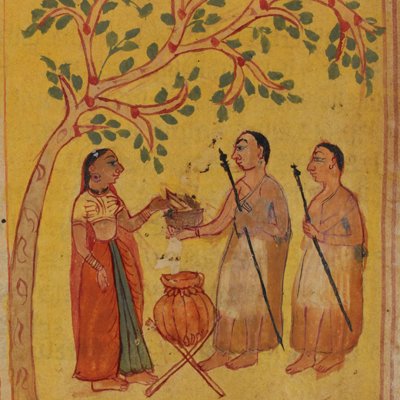
Part 3. Cross-Cultural Recognitions Between Vegans & Jains 04/25/2025
Rātri-bhojana | Not Eating After Dark
While exploring the parallels between Jain and vegan practices, Dr. Bohanec highlights a key difference: the Jain custom of rātri-bhojan tyāg (avoiding evening meals), a practice rarely seen among vegans. This article continues the conversation on cross-cultural recognitions between Jains and vegans.
Read More
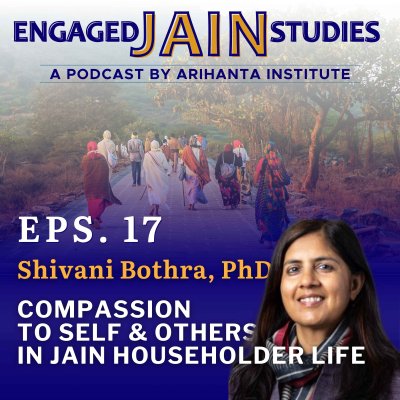
EJS Podcast Ep. 17 Shivani Bothra, PhD 04/23/2025
Compassion to Self & Others in Jain Householder Life
In this episode of the Engaged Jain Studies Podcast, Professor Christopher Jain Miller interviews Shivani Bothra, Assistant Professor of Religious Studies and the Bhagwan Suvidhinath Endowed Chair in Jain Studies at California State University, Long Beach.
Read More

Meet the MA Students: An Interview with Ankith Desai 04/18/2025
"This program presents a unique opportunity to deepen my understanding of Jainism’s universal principles, which speak directly to the struggles faced by individuals across diverse faiths, races, genders, social classes, and other demographic categories."
Read More
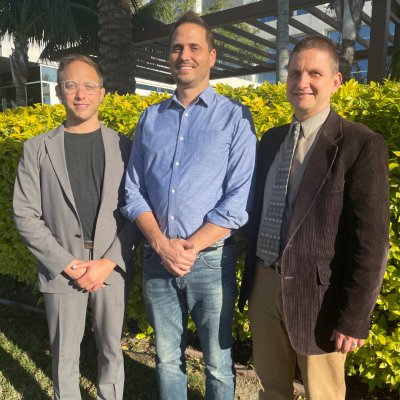
Arihanta Institute at the 2025 American Academy of Religion (AAR) 04/11/2025
An update from Professor Christopher Jain Miller, VP of Academic Affairs
The AAR 2025 schedule has been finalized, and our faculty will be presenting research within the Animals and Religion Unit, Contemplative Studies Unit, Music and Religion Unit, Yoga in Theory and Practice Unit, Indigenous Religious Traditions Unit, as well as the adjacent Dharma Academy of North America’s annual conference.
Read More
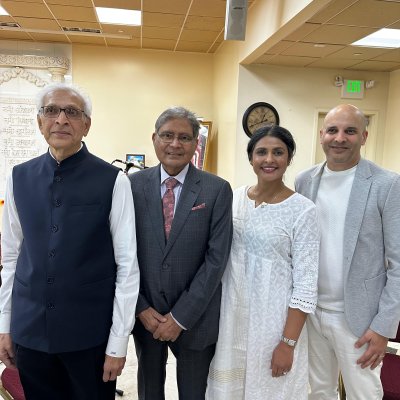
Arihanta Institute Announces $1 Million Endowment for Professorship in Vegan and Animal Advocacy Studies 04/08/2025
Drs. Jasvant and Meera Modi join hands with Dr. Namrata Patel to establish the Tīrthaṅkara Śreyāṃśanātha Endowment for Professorship in Vegan and Animal Advocacy Studies.
Read More
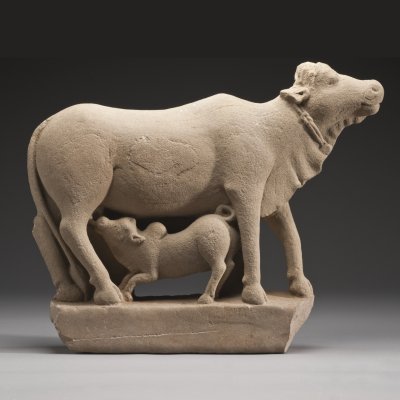
Jainism & Veganism 03/27/2025
What Now?
Professor Dickstein finds the evolving discourse on veganism within Jainism intriguing, particularly how Jains address the "vegan question" and "dairy question" through the lenses of scripture and nutritional science.
Read More

EJS Podcast Ep. 16 Christopher Sebastian 03/26/2025
Veganism in Pop Culture
Professor Jonathan Dickstein interviews Christopher Sebastian, a journalist, technical writer, and adjunct lecturer at Anglo-American University in Prague. Christopher, who writes about food, politics, media, pop culture, and animals, dives deep into the intersections of media, culture, and veganism.
Read More
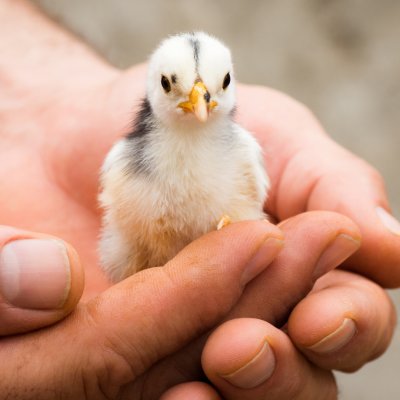
Jain Compassion & Nonviolence Toward Animals 03/25/2025
Professor Miller explores the concept of ahiṃsā in Jainism, how it is conveyed in the story of Neminatha’s compassion toward animals, and the practice of caring for animals in Jain communities through the establishment of panjrapoles and contemporary sanctuaries like Luvin Arms Animal Sanctuary in Eerie, Colorado.
Read More
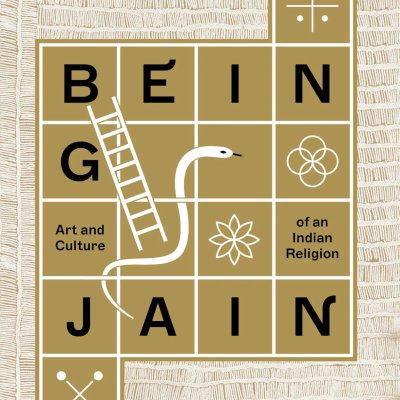
Being Jain: Art and Culture of an Indian Religion 03/18/2025
A Review of Museum Rietberg's Jain Exhibition Volume
From 2021 to 2023, Dr. Miller served on the advisory board for Museum Rietberg's "Being Jain" exhibition, contributing to several initiatives culminating in the publication of the souvenir volume that allows the public to engage with the exhibition.
Read More

Part 2: Cross-Cultural Recognitions Between Vegans & Jains 03/13/2025
Gradations of Spiritual Practices of Non-violence
For Jains, the attention to living beings and our potential to harm them with even the smallest actions is both a cause and an effect of that expansion of consciousness, and it seems to be akin to a similar awareness with vegans.
Read More
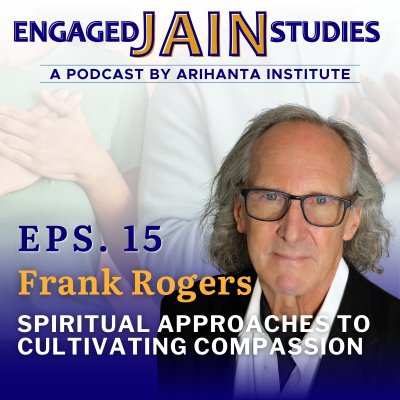
EJS Podcast Ep. 15 Frank Rogers, PhD 03/12/2025
Spiritual Approaches to Cultivating Compassion
The Engaged Jain Studies Podcast features Professor Christopher Jain Miller in conversation with Professor Frank Rogers Jr., the Muriel Bernice Roberts Professor of Spiritual Formation & Narrative Pedagogy and Co-Founder & Co-Director of the Center for Engaged Compassion at Claremont School of Theology.
Read More

3rd Annual Engaged Jain Studies Conference: “Compassion-in-Action” 03/03/2025
Join us on Earth Day weekend, April 19-20, 2025, for the 3rd Annual Engaged Jain Studies Conference, an inspiring FREE, two-day online event dedicated to exploring the theme of “Compassion-in-Action.”
Read More
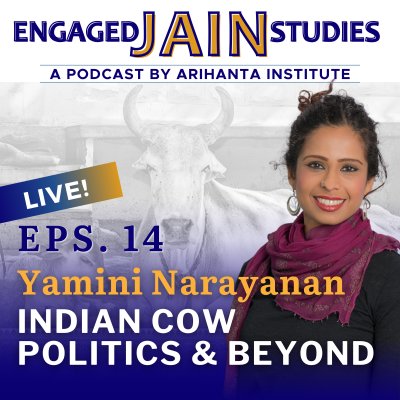
EJS Podcast Ep. 14 Yamini Narayanan 02/26/2025
Indian Cow Politics & Beyond
On this episode of the Engaged Jain Studies Podcast, Professor Jonathan Dickstein interviews Yamini Narayanan about her groundbreaking book, Mother Cow, Mother India. This conversation, recorded from a live episode event, delves into Narayanan’s shift into animal studies and her extended analysis of Indian bovines.
Read More
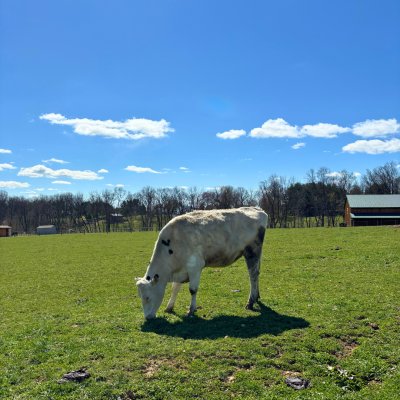
Vegan Studies Initiative 2024 02/20/2025
A Year in Review
The VSI is a multipronged intervention in the emerging field of vegan studies. The VSI interweaves graduate-level academic training, live and self-paced online learning courses, public conferences and guest speaker events, and global partnerships with aligned organizations.
Read More

The Unique Vision of Yoga in Yaśovijaya Gaṇi's Thought 02/13/2025
Yaśovijaya Gaṇi presents a unique and integrated vision of yoga in works like Jñānasāra (Essence of Knowledge) and Adhyātmasāra (Essence of the Inner Self). His approach synthesizes Jain principles with perspectives drawn from non-Jain traditions, illustrating a remarkable openness while upholding the distinctiveness of the Jain worldview.
Read More
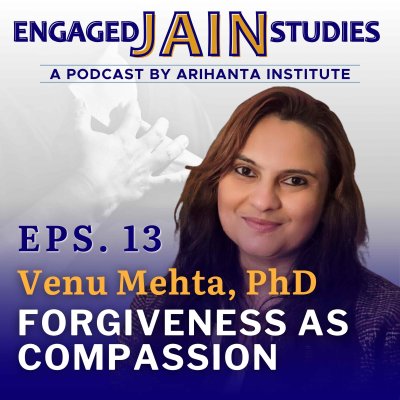
EJS Podcast Ep. 13 Venu Mehta, PhD 02/12/2025
Forgiveness as Compassion
In this episode of the EJS Podcast, Dr. Christopher Jain Miller interviews Dr. Venu Mehta, exploring her journey into studying forgiveness as compassion within Jain Studies, the Jain tradition’s rich approaches to forgiveness in texts and cultural practices, and practical ways to integrate these teachings into daily life for greater compassion and peace.
Read More

Ghent University & Arihanta Institute Sign Memorandum of Understanding 02/11/2025
New agreement strengthens Jain Studies collaborations between the institutions.
Two leading global research institutions, Ghent University and Arihanta Institute, have signed a Memorandum of Understanding (MOU) to deepen their ongoing work together in the academic field of Jain Studies.
Read More

Part 1: Cross-Cultural Recognitions Between Vegans & Jains 02/03/2025
Spiritual Veganism & Jain Abhakṣya Food Prohibitions
The modern vegan movement is often framed as a Western cultural phenomenon, but corollaries which posit a similar goal of not causing any more harm than what is absolutely necessary exist in a variety of non-Western cultures.
Read More
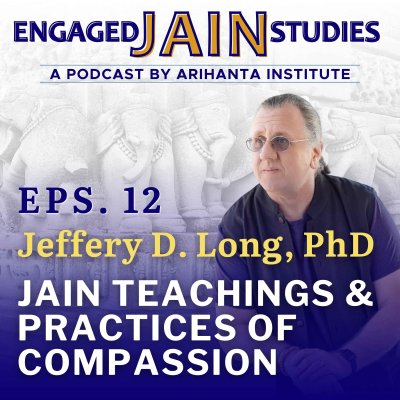
EJS Podcast Ep. 12 Jeffery D. Long, PhD 01/29/2025
Jain Teachings & Practices of Compassion
Arihanta Institute professor Christopher Jain Miller, PhD, speaks with senior scholar Professor Jeffery Long from Elizabethtown College. Professor Long shares his personal journey into Jain Studies and Compassion Studies, tracing his early encounters with South Asian dharma traditions and his eventual deep engagement with Jain philosophy.
Read More
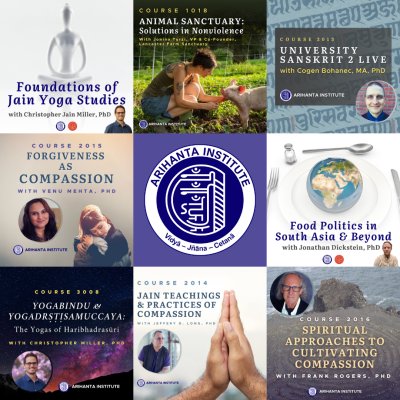
Welcome to Spring Semester 2025 at Arihanta Institute! 01/27/2025
Expanding Horizons in Jain Yoga, Compassion, Vegan Studies & Sanskrit
We are thrilled to embark on another exciting semester with our students and supporters, where we will offer an array of transformative educational opportunities and courses that are not only timely but will deepen your understanding of Jain studies, compassion, and nonviolence.
Read More

Exploring Hemacandra’s Yogaśāstra 01/23/2025
A Comprehensive Guide to Jain Yoga & Tantra
One of the most innovative aspects of Hemacandra’s Yogaśāstra is how it frames yoga within a Jain context. Though Jainism traditionally emphasizes non-activity (nivṛtti), Hemacandra redefines yoga as the unification of the three jewels. Yoga becomes synonymous with the Jain path—an integral combination of correct faith, knowledge, and conduct.
Read More
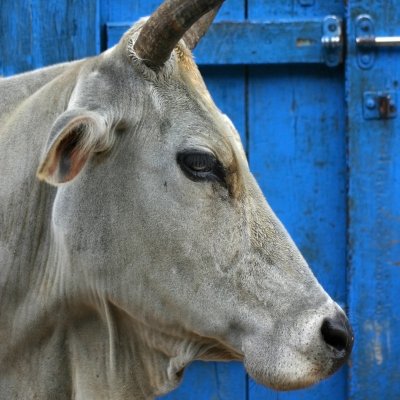
Gaushalas 01/20/2025
India's status as the world's largest milk producer and second-largest beef exporter highlights the paradox of its massive bovine population, dairy-driven exploitation, and the complexities of cow protection initiatives, revealing a blurred line between shelters like gaushalas and industrial dairy farming.
Read More
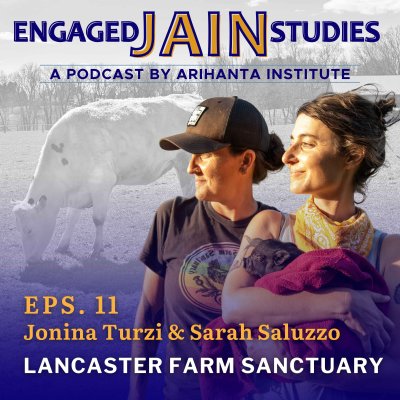
EJS Podcast Ep. 11 Jonina Turzi & Sarah Saluzzo 01/15/2025
Lancaster Farm Sanctuary
Arihanta Institute professor Jonathan Dickstein, PhD, interviews Jonina Turzi and Sarah Salluzzo, co-founders of Lancaster Farm Sanctuary. Together, they explore the history and philosophy of the farm sanctuary movement, its unique role in advocating for animals, and the mission and vision of Lancaster Farm Sanctuary.
Read More
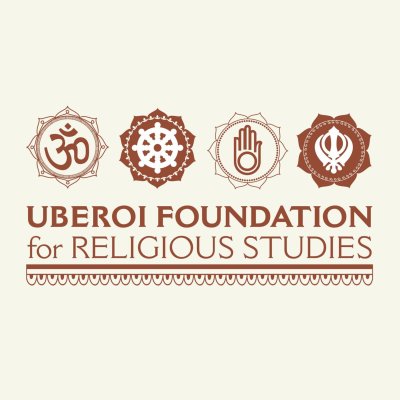
Arihanta Institute Receives Uberoi Foundation Grant to Advance Compassion Studies Initiative 01/15/2025
Arihanta Institute is honored to announce that Professor Christopher Jain Miller, PhD has been awarded a prestigious grant from the Uberoi Foundation for Religious Studies. The grant will fund the 2025 project, “Compassion in Jainism, Buddhism, Hinduism, and Sikhism,” a cornerstone of Arihanta Institute’s Compassion Studies Initiative (CSI@AI).
Read More

What is 'Indian Philosophy?' - Dharma Traditions, Dharma Studies, and the Quest to Interpret South Asian Religions for Global Audiences 01/08/2025
Dharma Traditions, Dharma Studies, and the Quest to Interpret South Asian Religions for Global Audiences
Read More
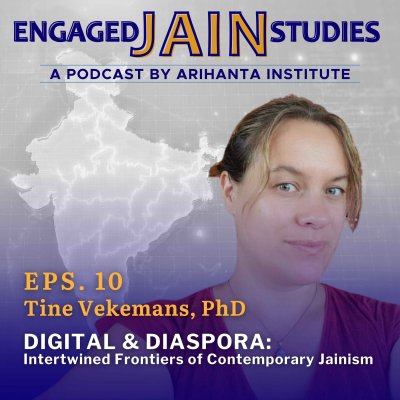
EJS Podcast Ep. 10 Tine Vekemans | Digital & Diaspora: Intertwined Frontiers of Contemporary Jainism 12/20/2024
Professor Christopher Miller, PhD interviews Tine Vekemans, PhD from Ghent University to discuss her groundbreaking book, Digital & Diaspora: Intertwined Frontiers of Contemporary Jainism with insights into how Jain communities in Belgium, the UK, and North America are navigating the intersections of diasporic life and digital innovation.
Read More
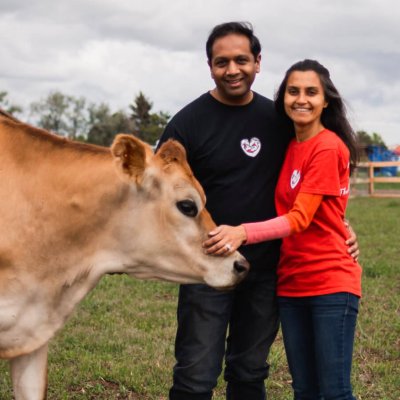
Luvin Arms: A Panjrapole in Colorado 12/09/2024
Founded in 2015 by Shaleen and Shilpi Shah, the sanctuary’s evolution from a modest family project to a dynamic, community-driven institution underscores its interweaving of influences old and new, traditional and progressive, and religious and secular.
Read More

Dating and Exploring Śubhacandra’s Jñānārṇava: A Meditation Manual for Liberation 12/06/2024
The Jñānārṇava (“Ocean of Knowledge”) by Ācārya Śubhacandra is a significant Jain text that offers a comprehensive exploration of meditation practices aimed at achieving liberation from the cycle of rebirth.
Read More
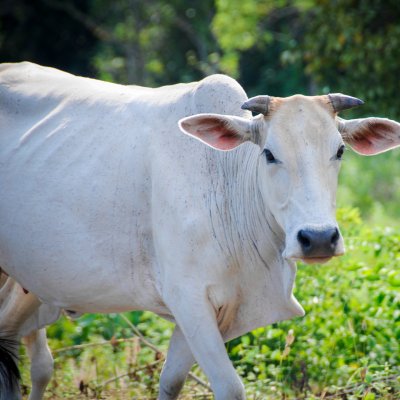
Panjrapole: The Jain Animal Sanctuary 11/27/2024
A panjrapole refers to a place where elderly, infirm, or needy animals are cared for and allowed to live out the rest of their natural lives. Panjrapoles are widely known within contemporary Jain communities, where their operation is viewed as an actualization of compassion through active caregiving for animals.
Read More
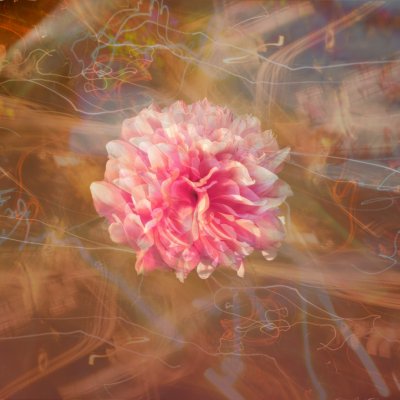
Kundakunda and the Essence of the Soul: The Samayasāra 11/20/2024
Kundakunda is one of the most significant figures in the Digambara Jain tradition. His work Samayasāra (Essence of the Self) remains a profound text that has shaped Jain philosophical thought, particularly with its focus on the true nature of the soul (jīva).
Read More
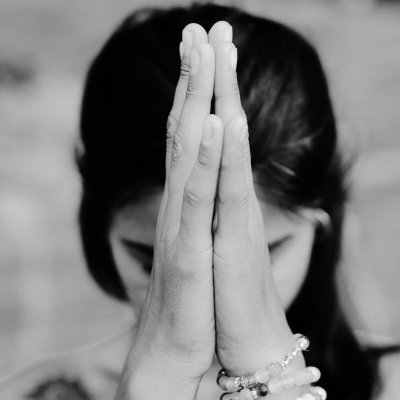
Ahiṃsā Across South Asian Religions: An Exploration of Nonviolence in Buddhist, Jain, Hindu, and Yoga Traditions 11/19/2024
Ahiṃsā, in its many forms, encourages mindfulness, fosters peace, and promotes harmony within oneself and society. While interpretations vary across traditions, its essence conveys a universal truth: compassion, respect for life, and the pursuit of non-harm.
Read More

Meet the MA Students: An Interview with Saathvik Devarakonda 11/18/2024
"Advocating for Jainism’s contemporary relevance is a steadfast aim of mine, and at Arihanta Institute...I have the chance to interact with pioneering experts in Jain studies, engage with the latest research, and strengthen the theoretical foundations for my future research endeavors."
Read More

Arihanta Institute Launches Compassion Studies Initiative 11/12/2024
A Pathway to Living More Compassionate Lives
Arihanta Institute proudly announces the launch of the Compassion Studies Initiative, an innovative educational program designed to explore and cultivate compassion in our everyday lives. In a time marked by division and uncertainty, CSI@AI seeks to inspire individuals to embrace compassion as a force for personal growth and the betterment of society.
Read More

The Legacy of Haribhadra Yākinīputra in Jain Yoga Tradition 11/07/2024
Haribhadra Yākinīputra authored numerous texts, many of which have had a lasting impact on Jain thought. Among his works, two texts stand out for their contributions to Jain yoga: the Yogavimśikā and the Yogadṛṣṭisamuccaya.
Read More
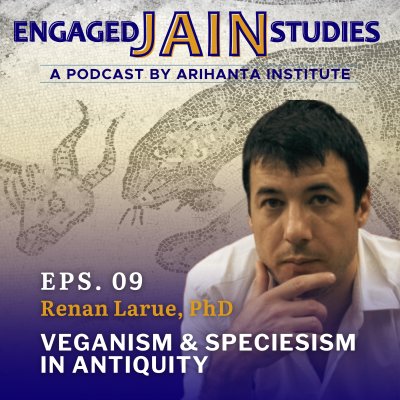
EJS Podcast Ep. 9 Renan Larue | Veganism & Speciesism in Antiquity 11/05/2024
In this episode of the Engaged Jain Studies Podcast, Arihanta Institute professor Jonathan Dickstein, PhD interviews professor, French literary scholar, and historian of vegetarianism, Renan Larue, PhD about his academic journey and his insights into ancient Western philosophy’s perspectives on meat consumption and anthropocentrism.
Read More

The Yoga of Yaśovijaya Gaṇi 11/04/2024
In preparation for the Jain Yoga seminarProfessor Christopher Jain Miller is teaching in our collaborative MA program at Claremont School of Theology, he had the great pleasure of reading Professor Jeffery D. Long’s article summarizing the profound insights in Yaśovijaya Gaṇi’s Yogasāra and Adhyātmasāra (Long 2016).
Read More
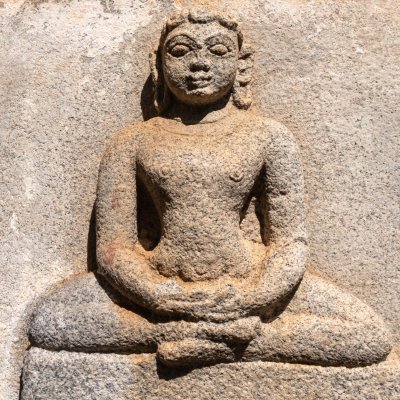
Arihanta Institute Launches Center for the Study of Jain Yoga 10/30/2024
The Center for the Study of Jain Yoga (CSJY) at Arihanta Institute is a pioneering online hub for advanced research and academic exploration of Jain yoga.
Read More

The Interfaith Jain Yoga Of Haribhadra, Part 3 10/28/2024
Dr. Bohanec concludes his three-part series on Haribhadra’s Jain yoga philosophy.
Read More

Meet the MA Students: An Interview with Agni Hogaboom 10/23/2024
"When I found Arihanta Institute, I found a depth of academic rigor and engaged spirituality that was simply astonishing. It feels like I’ve plugged my tattered spiritual cord into an outlet of power - not personal power so much as: the education I need to make a more effective difference in the world."
Read More

Haribhadra's Jain Yoga I: Exploring the Philosophical Divergences with Patañjali, Vedānta, and Buddhism 10/21/2024
Haribhadra Virahāṅka (6th century) and Haribhadra Yākinīputra (8th century) shaped Jain philosophy distinctly. Virahāṅka emphasized Jain yoga, karma purification, and ethics, while Yākinīputra engaged with broader Indian philosophies, integrating Jain thought with Buddhism and Vedānta. Their legacies still influence Jain practice today.
Read More

The Interfaith Jain Yoga Of Haribhadra, Part 2 10/17/2024
Dr. Bohanec continues his series on Haribhadra’s Yoga-Drṣṭi-Samuccaya (YDS), religious pluralism, and interfaith dialogue in his approach to Jain Yoga.
Read More
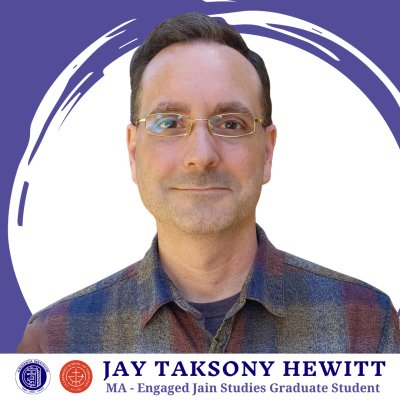
Meet the MA Students: An Interview with Jay Taksony Hewitt 10/11/2024
"I believe Jainism offers unique and important perspectives on matters that may be helpful in shaping the biopolitics of the era to come. I take it as a matter of course that vegan epistemology and biophilic nonviolence are cornerstone principles of the ecological civilization we desperately, urgently need to bring forth in the world."
Read More

Exploring Yoga in the Tattvārthasūtra 10/10/2024
The Tattvārthasūtra, written by Umāsvāti in the 5th century CE, is one of the foundational texts of Jain philosophy.
Read More
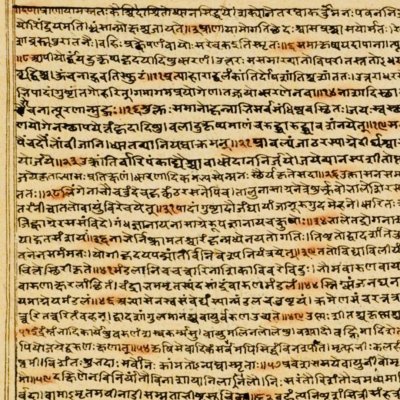
The Yoga of Hemacandra's Yogaśāstra 10/09/2024
Dr. Miller shares some of the fascinating features of Hemacandra's famous yoga text, the Yogaśāstra.
Read More
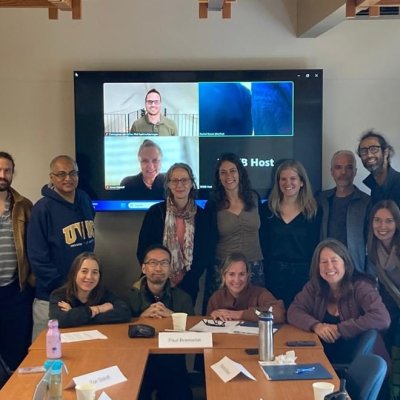
Professor Christopher Jain Miller Participates in Workshop on Asian Practices & Western Influence at University of Victoria 10/03/2024
Dr. Miller recently participated in a scholarly workshop, “We Should Know Better,” which brought together a diverse group of scholar-practitioners from various traditions to explore the tensions between personal commitments to Asian spiritual practices and the impacts of Western social and political dynamics on those practices.
Read More
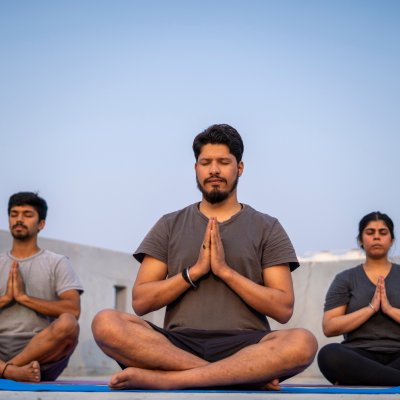
Jain Yoga – An Introduction 09/25/2024
What does "yoga" truly mean? In this article, PhD student Corinna May Lhoir from the University of Hamburg takes us through the profound historical shifts in the meaning of yoga, tracing its origins in Vedic literature and its later spiritual and ethical significance in Jainism.
Read More
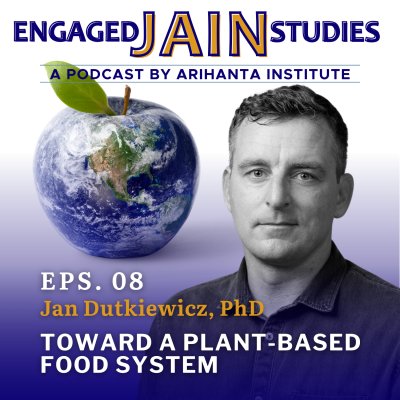
EJS Podcast Ep. 8 Jan Dutkiewicz | Toward a Plant-Based Food System 09/17/2024
In this episode of the Engaged Jain Studies Podcast, Arihanta Institute professor Jonathan Dickstein, PhD interviews Pratt Institute political economist Jan Dutkiewicz, PhD. Professor Dutkiewicz shares his journey from business and journalism to the academic study of the politics, economics, and social implications of factory farming.
Read More

Meet the MA Students: An Interview with Diana Hulet 09/10/2024
"We need people who are willing to let individualism yield to interconnection and who will speak out for the most vulnerable populations... I would like to imagine an Eden that is here on earth and a samādhi that is collective."
Read More

🍁 Welcome to Fall Semester 2024 at Arihanta Institute! 09/03/2024
Fall semester 2024 is underway at Arihanta Institute and we are thrilled to welcome our students back for another enriching academic year. We extend a warm welcome to our returning students and a special greeting to our new incoming graduate students. We wish you an auspicious start to your studies and are here to support your success every step of the way!
Read More

Meet the MA Students: An Interview with Gopal Soni 09/03/2024
“What I have taken from my studies in the field of religious studies until now is how we as a whole can become more humane, how our lives can become more peaceful, and how we can create a more harmonious environment.”
Read More

The Kaṣāyas 08/29/2024
There are five “causes” (hetu) of the entire process of samṣāric bondage: wrong worldview (mithyā darśana), nonabstinence (avirati); carelessness (pramāda), passions (kaṣāya), and action (yoga). While action is the driver of karmic inflow, the precise determinant for karmic binding is the fourth cause in the list, kaṣāya (“passions”).
Read More
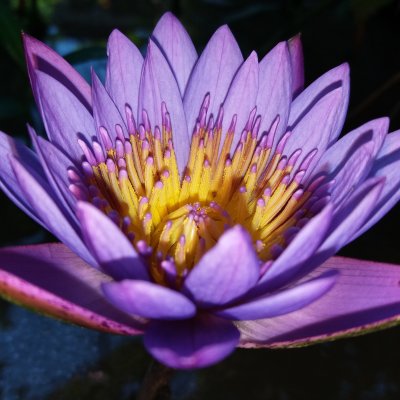
🪷 7 Free Courses for You During Paryuṣaṇa & Daśalakṣaṇa 08/27/2024
Most Jain festivals aim to “celebrate” the happiness and peace of one’s soul through self-restraint, austerities, penance, and contemplation as well as listening to scholarly lectures and engaging in self-studies. To facilitate such studies, we are pleased to offer a set of seven complimentary, self-paced courses.
Read More

The Interfaith Jain Yoga of Haribhadra, Part 1 08/22/2024
Haribhadra exemplifies religious pluralism and interfaith dialogue in his approach to Jain Yoga in dialogue with other yoga traditions. Religious pluralism refers to valuing of religious diversity as a source of societal strength, often enhanced through interfaith dialogue, respect, and therefore peace-building.
Read More
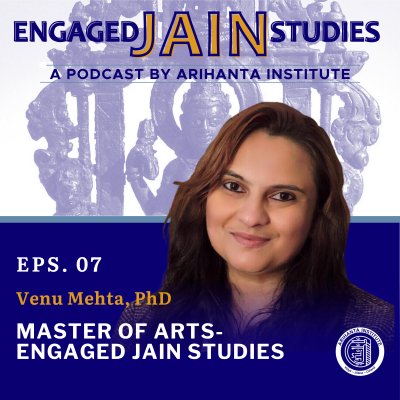
EJS Podcast Ep. 7 Venu Mehta | Master of Arts-Engaged Jain Studies 08/16/2024
In this episode of the Engaged Jain Studies Podcast, Professor Miller interviews Professor Venu Mehta, PhD from Claremont School of Theology and they discuss the courses she teaches in the MA - Engaged Jain Studies program, the transformative experiences of her students, and her perspective on what "engaged" Jainism means.
Read More
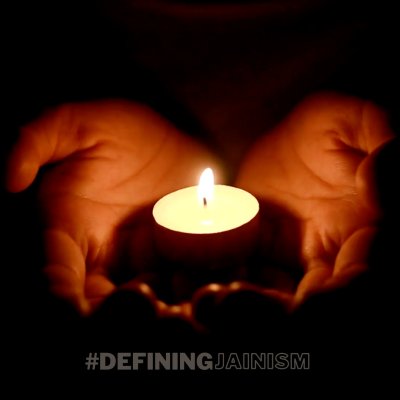
The Yoga of Haribhadra Yākinīputra's Yogadṛṣṭisamuccaya 08/07/2024
Professor Christopher Jain Miller considers the hagiography, history, and contents as they relate to Haribhadra Yākinīputra's text, the Yogadṛṣṭisamuccaya.
Read More

The Jain Theory of Knowledge 07/30/2024
Four types of epistemological means that are believed by Jains to provide validation verification for knowledge can include (1) pratyakṣa (direct cognition), (2) anumāna (inference, or logic), (3) āgama (scripture-based testimony), and (4) upamāna (comparisons [or by analogy]).
Read More
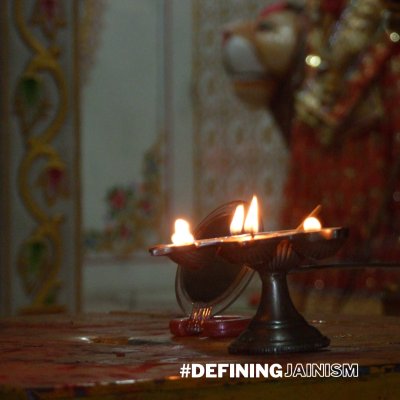
What is the Purpose of Jain Pūjā? 07/24/2024
Pūjā is derived from the Sanskrit verb pūj, which means to honor, worship, revere, respect, or regard, but how should we understand pūjā in the Jain tradition?
Read More
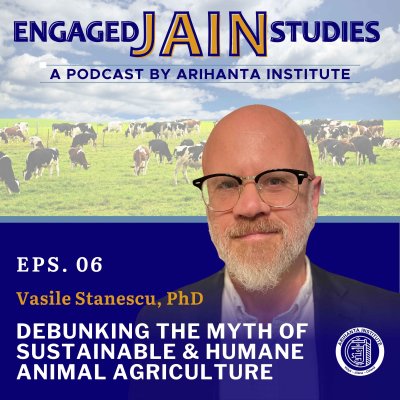
EJS Podcast Ep. 6 Vasile Stanescu | Debunking the Myth of Sustainable & Humane Animal Agriculture 07/20/2024
"Veganism is not a diet. Veganism is not a lifestyle. Veganism is, and must be, a social justice movement, in solidarity with other social justice movements. There is no more time for nonsense." -- WinforAnimals.org, Vasile Stanescu, PhD
Read More
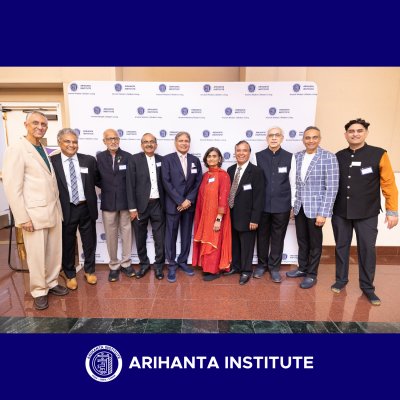
Arihanta Institute Champions Engaged Jain Studies at Jain Center of Southern California Fundraising Event 07/17/2024
Over 250 Attendees Show Strong Support, Highlighted by Community Leader and Philanthropist Dr. Jasvant Modi.
Read More
View Gallery 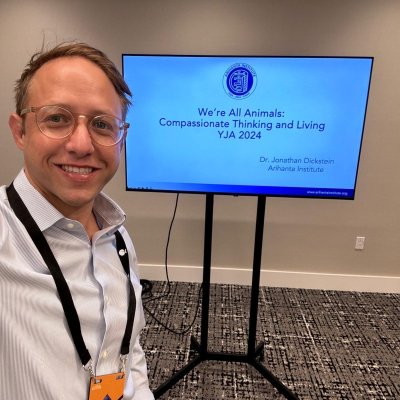
Young Jains of America Convention 2024: Reflections of a First-Timer 07/15/2024
Dr. Dickstein on his first time at YJA: "Nothing was more palpable and pervasive at the YJA gathering than the energy coursing through the hallways and meeting spaces. From the moment I arrived—checking in, registering, and acquiring all the necessary badges, schedules, and other materials—I couldn't not feel the widespread excitement."
Read More
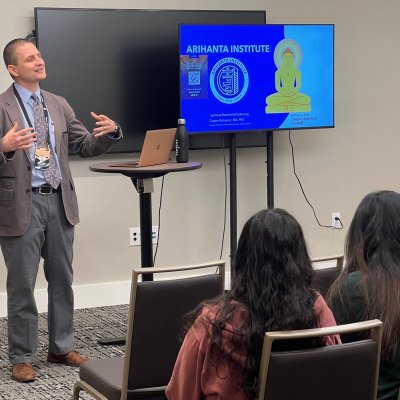
My Experience at YJA, 2024 07/15/2024
Dr. Bohanec reflects on his second time attending the Young Jains of America (YJA) convention in July 2024.
Read More
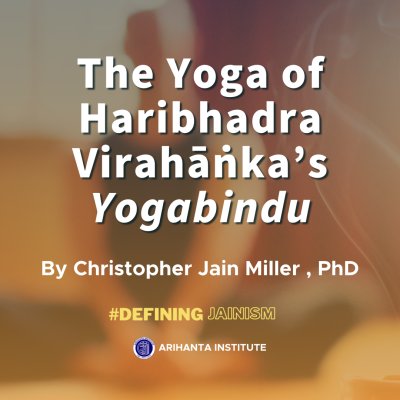
The Yoga of Haribhadra Virahāṅka’s Yogabindu 07/10/2024
As Dr. Miller was preparing for his new graduate seminar on Jain Yoga this year, he revisited a number of key Jain yoga texts including, the Yogabindu, likely written in the 6th c. CE, by an author by the name of Haribhadra Virahāṅka.
Read More
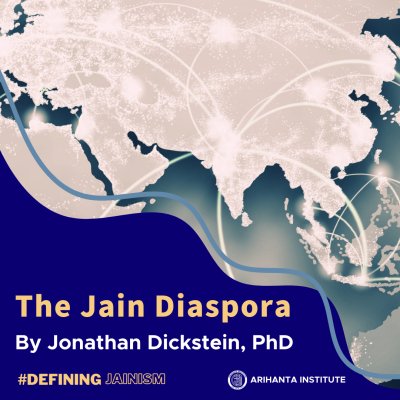
The Jain Diaspora 06/18/2024
Since the turn of the twentieth century, thousands of lay Jains—and some ascetics as well—have traveled, studied, worked, and eventually established their own thriving communities in Africa, North America, Europe, and elsewhere. Today, 250,000 to 300,000 Jains live outside of India, a number that only continues to rise.
Read More
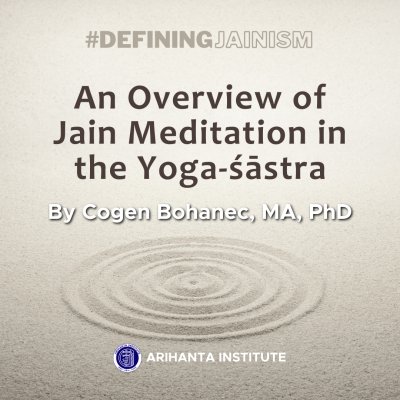
An Overview of Jain Meditation in the Yoga-śāstra 06/11/2024
In the Yoga-śāstra of Hemacandra the meditative states of yoga involve a dialectic between degrees of states of “active engagement” (pravṛtti) with that which is external to the soul (the cosmos, the body, the mind and subtle body, etc.) and degrees of movement towards “withdrawn disengagement” (nivṛtti) from these.
Read More
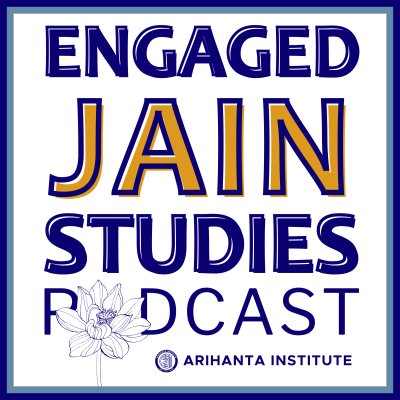
Welcome to the Engaged Jain Studies Podcast! 05/31/2024
Brought to you by Arihanta Institute, this new podcast series features leading figures in the fields of Jain Studies, Religious Studies, Vegan Studies, and Social Justice. Each episode explores topics that transcend personal spiritual growth, connecting philosophy, religion, and spirituality with the crucial task of societal wellbeing.
Read More
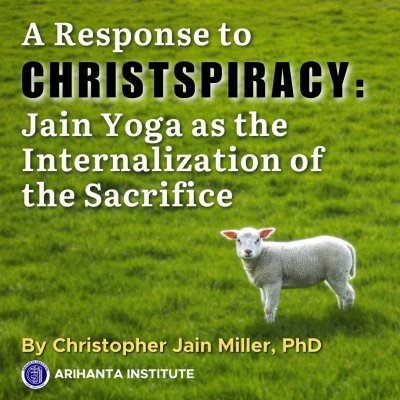
A Response to Christspiracy: Jain Yoga as the Internalization of the Sacrifice 05/23/2024
Christspiracy has reinvigorated critical dialogue on the ethics of animal sacrifice and killing in religious traditions. Christspiracy does not mention the profound contributions of another ancient tradition that has vehemently opposed animal sacrifice for thousands of years: Jainism.
Read More

Arihanta Institute at the 2024 Annual Meetings of the American Academy of Religion 05/15/2024
Join Arihanta Institute! The AAR will also be hosting, for the first time ever since the pandemic, an online conference from June 25-27, 2024, to allow scholars who might not otherwise be able to participate in the AAR to present their research online.
Read More
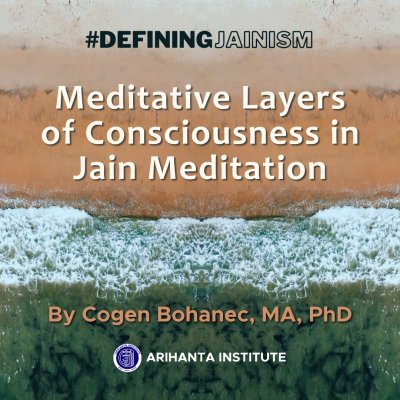
Meditative Layers of Consciousness in Jain Meditation 05/09/2024
Professor Cogen Bohanec, MA, PhD examines the layered contemplative practices of Jain Yoga as articulated by Ācārya Suśīl Kumār, and reiterated by Dr. Parveen Jain.
Read More
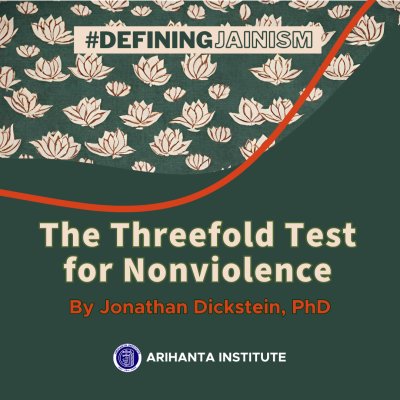
The Threefold Test for Nonviolence 04/25/2024
Ahiṃsā is the principal vow (vrata) in Jainism, a pledge made by all Jains—ascetic and lay—to refrain as much as possible from committing acts of violence. But what does it mean to commit an act of violence? What qualifies as acting in violation of the vow of ahiṃsā?
Read More
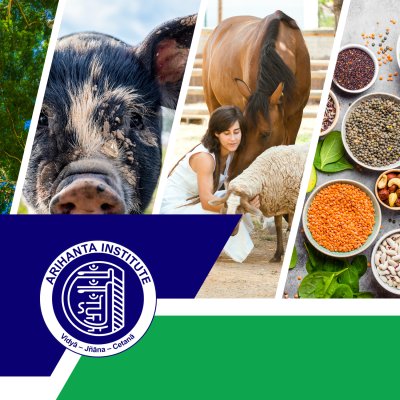
The Vegan Studies Initiative at Arihanta Institute 04/21/2024
The Vegan Studies Initiative at Arihanta Institute is a groundbreaking online program focused on promoting and enacting veganism as an expression of multispecies nonviolence. Please join us in pursuing a future dedicated to compassion and consideration for all!
Read More

New Online Speaker Series: Voices in Vegan Studies 04/21/2024
Voices in Vegan Studies is a new online speaker series featuring premier scholars in the field of Vegan Studies.
Read More
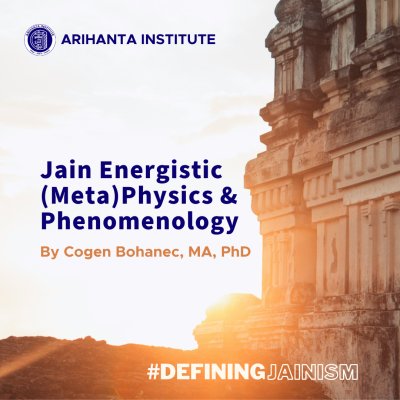
Jain Energistic (Meta)Physics & Phenomenology 04/12/2024
“Is it an illogical contradiction to propose that an entity both changes and remains the same over time?” “Is ‘changing sameness’ possible?” Here, we will see how Jain Dharma can answer this question and come to a conclusion that is coherent with the energistic physics of modern science.
Read More
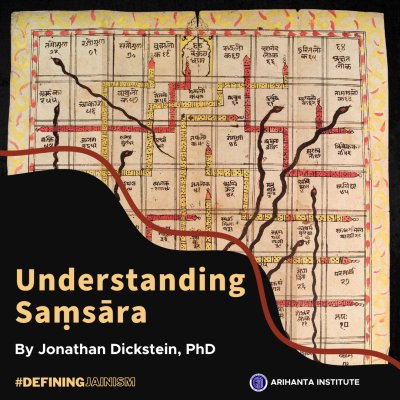
Understanding Saṃsāra 04/04/2024
Saṃsāra is a noun derived from the Sanskrit root saṃ + √sṛ, meaning a “going or wandering through” (Monier-Williams). The term refers specifically to “wandering through” the cycle of rebirth and redeath, a process otherwise known as reincarnation, transmigration, and metempsychosis.
Read More
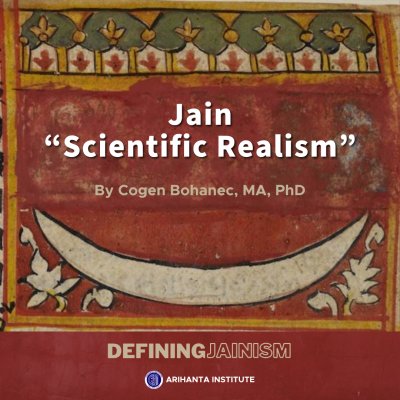
Jain “Scientific Realism” 03/21/2024
In some ways, the Jain tradition can be thought of as a scientific exploration of reality that asks various “research questions.” The basic research question of the Jain tradition is “Mukti-marga,” the “path to liberation, which proposes the research question of “how can we live in such a way that we will free ourselves from suffering?”
Read More
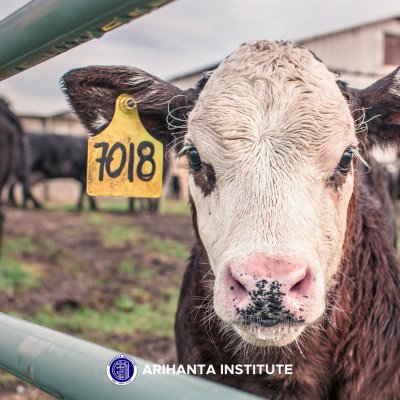
First Global Graduate Studies Concentration Focusing on Veganism 03/13/2024
Creators of Engaged Jain Studies discipline also add a concentration in Yoga Studies.
Read More
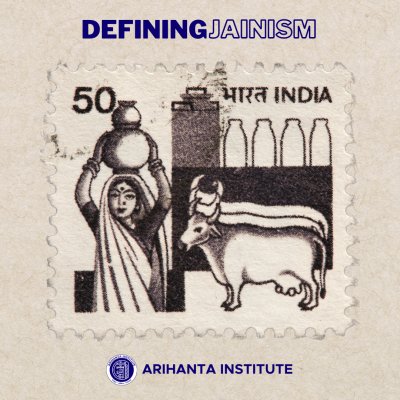
Are Jains Vegan? What do Jain Scriptures Say About Dairy? 03/07/2024
What do Jain scriptures tell us about dairy consumption? And can Jain tradition change?
Read More
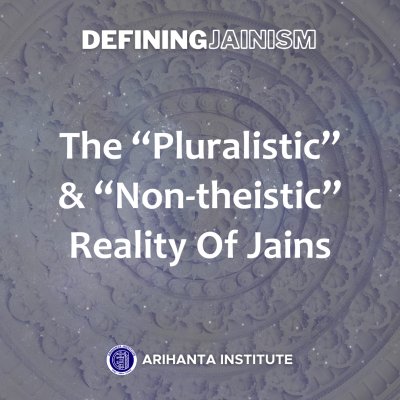
The “Pluralistic” and “Non-theistic” Reality of Jains 03/04/2024
Social pluralism of the Jain tradition follows coherently from the Jain view of reality, or Jain “ontology,” or the study of what is “real” and what aspects of our perception are mentally constructed illusions.
Read More
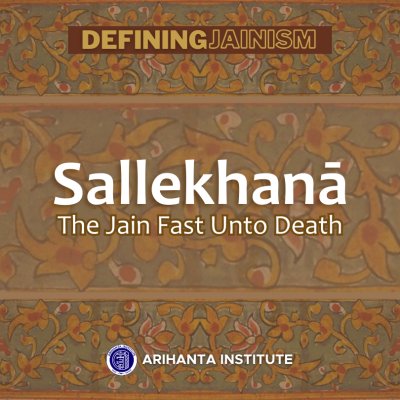
Sallekhanā, the Jain Fast Unto Death 02/23/2024
Sallekhanā literally means “thinning out” or “emaciating.” It is a terminal fast undertaken by both ascetics and laypersons. It is a legal and political topic of heated debate, and the issue remains sensitive for Jains and is integral to a holistic understanding of ritual in Jainism.
Read More
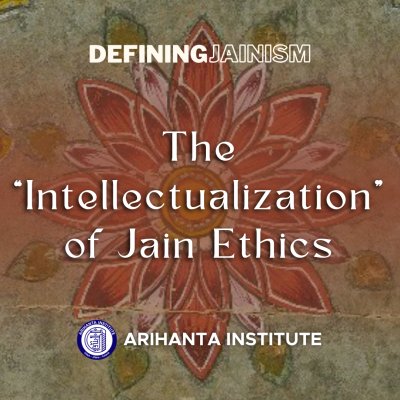
The “Intellectualization” of Jain Ethics 02/08/2024
Without being a philosopher, or even someone interested in moral philosophy, one may still ask themselves questions about the starting ground of ethical behavior...This article attempts to describe how Jain ethics gazes outward towards others, inward towards oneself, and upward through a novel “intellectualization” of ethics.
Read More
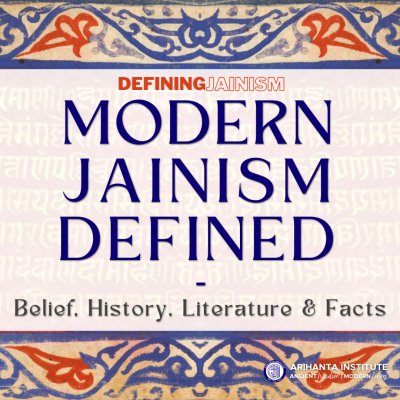
Modern Jainism Defined | Belief, History, Literature & Facts 02/01/2024
With a rich history dating back thousands of years, Jainism is not only a religion but a way of life that emphasizes non-violence, truth, and asceticism. In this article, I will explore some key aspects of Jainism, from its core beliefs and historical roots to its literature and some other fascinating facts.
Read More

Enroll, Learn & Enjoy! Four New Courses for Spring Session 2024 01/31/2024
Four exciting new self-paced online courses available for students to learn and enjoy starting, February 1st!
Read More
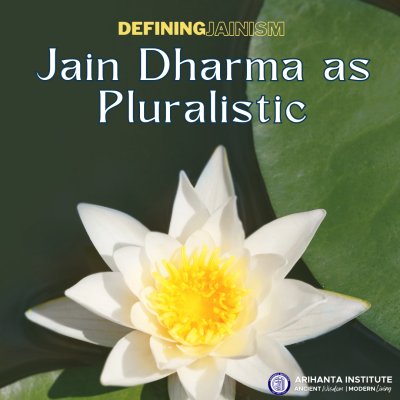
Jain Dharma as Pluralistic 01/26/2024
Loosely defined, social pluralism is when a diverse society works towards common values by perceiving, valuing, and utilizing diversity as a source of social strength. Likewise, religious pluralism refers to valuing religious diversity as a source of societal strength, enhanced through interfaith dialogue, respect, and peacebuilding.
Read More

What is the Jain Conception of Time? 01/18/2024
This blog entry is devoted to what we could call “cosmic time” rather than “mundane time.” Or, to put it another way, it is an elaboration of kalpas rather than kāla, of time cycles rather than the everyday passing of units of time.
Read More
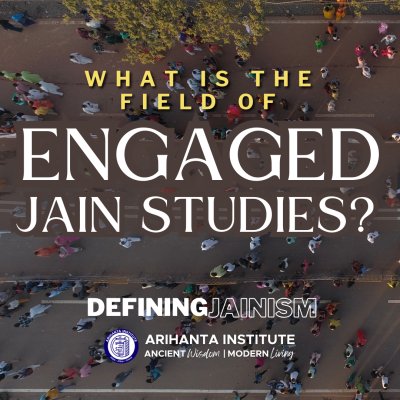
What is the Field of "Engaged Jain Studies" and Its Object, "Engaged Jainism"? 01/11/2024
In collaboration with our partners at Claremont School of Theology, we at Arihanta Institute have proudly established the academic discipline of Engaged Jain Studies, intended for the academic study of Engaged Jainism. But what exactly is "Engaged Jain Studies" and its object of study, "Engaged Jainism"?
Read More

Jain Yoga and Dhyāna – From Contemplative Introspection to Blissful Meditation 01/07/2024
Yoga is an essential spiritual practice in all dharmic traditions. Although the faith-based yoga practices like Jain Yoga, Vedic Yoga and Buddhist Yoga may seem to vary in their specific implementations, the underlying principles are fairly standard.
Read More
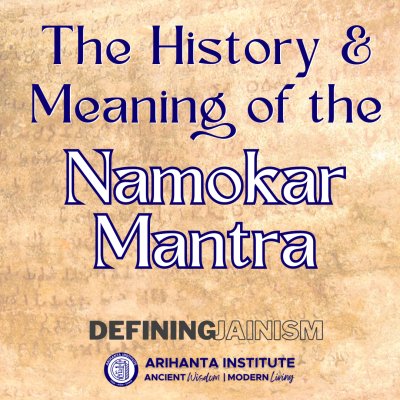
The History & Meaning of the Namokar Mantra 01/04/2024
A Brief Summary of the Research of Gustav Roth
Two questions I often receive from students are: Where does the Namokar Mantra come from? What does it mean? If you also ask these questions, read on to find out more.
Read More

Do Jains Believe in God? 12/21/2023
“Do Jains believe in God?” requires some explanation as to what is meant by “God.” Our question inquires into the existence of a capital “G” god in Jainism, a singular supreme being with an origin and nature and prowess uniquely different from all other beings, even other gods.
Read More

Jain Biophilia 12/11/2023
Biophilia is a subset of environmental ethics and environmentalrnpsychology that underscores human dependence on nature in a way that is more than material and physical, but also contributes to our intellectual, emotional, and spiritual wellbeing.
Read More

Meet the MA Students: An Interview with Komal Jain 11/27/2023
"I am a practicing Jain, and my native language is Hindi. I was born and raised in India, though I moved to the United States at the age of 9 where I completed my schooling and became proficient in English. During my school years, I struggled and always felt unlikely to succeed."
Read More

Meet the MA Students: An Interview with James Taylor 11/27/2023
"My main areas of interest to write about are animal advocacy and vegan education, which I feel are topics of utmost importance. I endeavor to educate as many people as possible about veganism and animal rights, I feel that I can have the greatest impact on the most amount of suffering in the world."
Read More

Meet the MA Students: An Interview with Chaitanya Prakash 11/27/2023
"I believe that Jainism's emphasis on embodying devotion and spirituality has the potential to bring about profound personal and collective transformation. I plan to integrate these teachings into my daily life and share their benefits with others."
Read More

Meet the MA Students: An Interview with Jesse Weaver 11/26/2023
“To find a home in a spiritual tradition was not a straightforward process for me. Fortunately, in finding Jain Dharma I was finally able to articulate my worldview and build the foundation of my moral life which will inform my professional and personal future.”
Read More

Why Don’t Jains Eat Root Vegetables? 11/20/2023
The traditional Jain diet excludes root vegetables such as onions, garlic, potatoes, and carrots. But why? Why do Jains avoid these vegetables and opt for others instead?
Read More

Gandhi & Anekānta-vāda 11/15/2023
Gandhi’s relationship to religion was immensely complex. Both in his political approach to end religious conflict and in his own personal spiritual attempts to understand the divinity in the World’s traditions, he sought to find equal value in all traditions, seeking constantly to reconcile the seemingly irreconcilable differences between them.
Read More
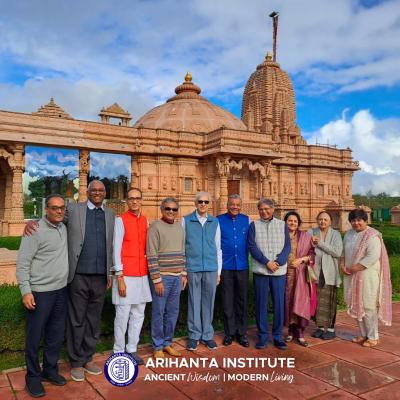
Arihanta Institute at the UK House of Commons: A Trip to Meet the British Jain Leaders 11/08/2023
Recently, some of us from the Arihanta Institute team visited the UK to participate in the Ahimsa Day celebrations at the British House of Commons and met some of the prominent Jain leaders of the country. We had excellent meetings and were pleasantly surprised by the level of awareness of Arihanta Institute.
Read More
View Gallery 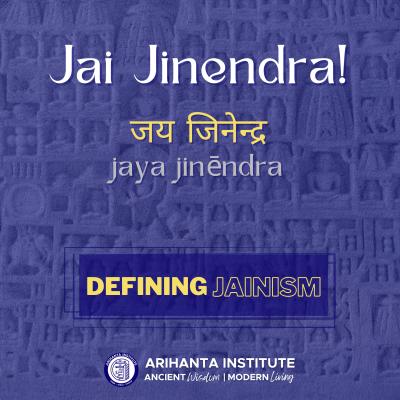
What Does “Jai Jinendra” Mean? 11/07/2023
Jains routinely say “Jai Jinendra” to one another when they meet. But where does this greeting come from, what does it mean, and why don’t Jains just say hello?
Read More

The Rational Basis of The Jain Concept of Soul 06/14/2023
Is there empirical evidence for the existence of an eternal soul? What data might be supplied by our senses, our experiences, that might provide justification for the existence of the soul?
Read More

Lord Mahāvīra's Incredible Journey to Kevala-Jñāna 05/25/2023
Lord Mahāvīra attained kevala-jñāna – the ultimate, unabridged, all-encompassing, uninhibited, and absolute wisdom, and had the revelation of tattva – the fundamental truth, in the thirteenth year of his ascetic life of extreme penance near the village of Jrambhika.
Read More

Ahiṃsā and The Social Reforms Inspired by Lord Mahāvīra 05/24/2023
The name of Lord Mahāvīra, the last jina of this era, immediately invokes the thought of ahiṃsā (nonviolence) – perhaps the most valuable gift ever granted to humanity. There is no one who has promoted the value of nonviolence more than him, and no one is more effective, thoughtful and kindhearted champion of comprehensive nonviolence.
Read More

Understanding the Menace of Social Intolerance 05/23/2023
If all of us share universal values such as love, friendship, compassion, mutual respect, and other meritorious qualities, why is social intolerance on the rise, especially when we are all experiencing the havoc unleashed by the ongoing COVID-19 pandemic?
Read More

Navpada Āyambila Oli The Penance for Self-Cultivation 05/22/2023
The followers of the Jain tradition observe Navpada Āyambila Oli, also called Navpada Oli in short, two times every year. Each observation lasts for nine days. The dates are based on the Jain lunisolar calendar, called Vīra Nirvāṇa Saṁvat calendar.
Read More

The Relevance of The Paryuṣaṇa Parva 05/21/2023
The Paryuṣaṇa Parva (festival) is the most auspicious festival for Jains. The festival has immense benefits for personal development, and thus, immeasurable value for the betterment of society. That is why it is called the king of all Jain festivals.
Read More

Gandhi’s Jain Journey: The Role of Jain Thought and Practice in the Making of the Mahātma 07/12/2022
Mahātma Gandhi had a number of important influences throughout his life. Critical among them is the Jain tradition and its teachings of nonviolence (ahiṃsā).
Read More

Jainism and Sentient Rights 07/12/2022
This question is not infrequently voiced to animal rights advocates. While there are some troublesome assumptions embedded in its phrasing – the cogency of the catch-all category “animals,” the curious isolation of human animals from the category “animals,” the cross-cultural plausibility and applicability of “rights”
Read More

The Jain “Yoga of Non-violence” 07/12/2022
Everyone has heard of yoga. But have you heard about Jain yoga? The purpose of Jain Yoga is to help one stop the inflow of karma (āśrava), and remove existing karma (nirjarā). “Good” karma is a means towards that end, and “bad” karma represents actions that move one away from that end.
Read More

How Jain Philosophy Inspired Me to Become Vegan 07/12/2022
You will not find the word “vegan” in any Jain text, though in light of today’s animal rights struggles, climate change, and human wellbeing, the Jain tradition’s ethical principles obliged me to adopt a vegan lifestyle.
Read More



